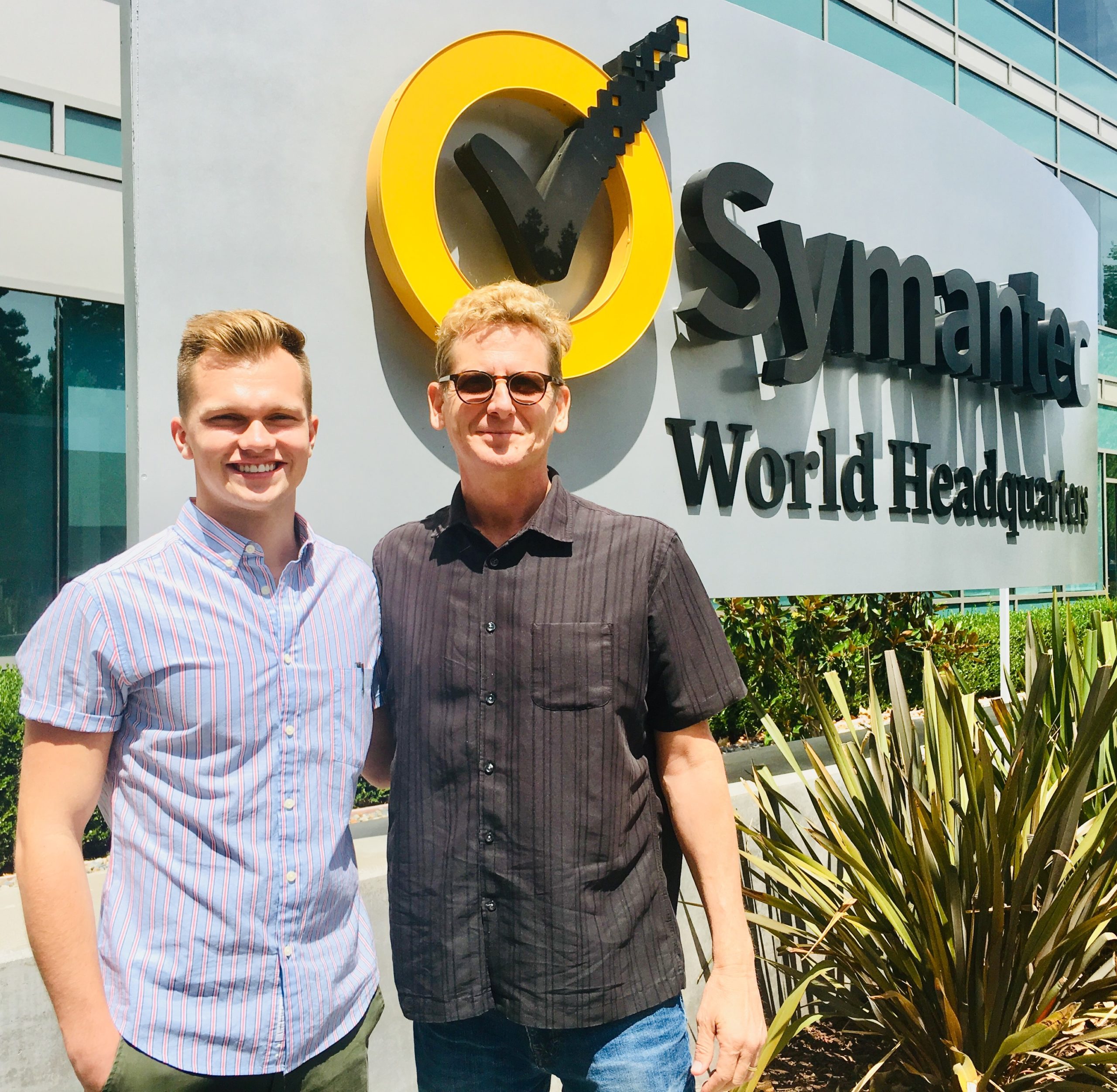
Pivotal
Summer internships arranged by Pivotal provide opportunities to young people who have been in the foster care system. Timmy Goldsberry (left) interned in Symantec’s accounting department in 2019. Tom Fandre, the business development manager of Pivotal, is to his right.
In 2020, Tom Fandre had hoped to place at least 90 foster youth in internships in the Silicon Valley area.
But when the pandemic hit, his San Jose, California-based nonprofit found it nearly impossible.
“Some businesses were completely on their heels,” Fandre said. “They had to lay people off or really triage to support their employees and different stakeholders. They just didn’t have the bandwidth at all.”
Fandre, the business development manager of Pivotal, which works with high school and college-age foster youth in California’s San Mateo and Santa Clara counties, found internships for only 17 students.
A Glassdoor survey in May found that half the internships posted on its site had dried up.
Now Fandre is ready to ramp back up for internships this summer. He believes providing opportunities to foster youth is critical.
“They’re the young people most at risk of falling through the cracks,” he said. “They’re not getting access, they’re not getting opportunity, and their resumes are not getting the kind of look and consideration that youth who are raised in stable homes.”
Fandre might not put it this way, but the question presents itself: If Silicon Valley can’t help foster youth get a leg up, who can?
An eight-year study of foster youth, the California Youth Transitions to Adulthood Study, showed glaring gaps in youth preparation for adulthood, particularly in areas of basic survival, such as housing, jobs and financial literacy.
Figures show that at age 19, one-third of former foster kids are homeless.
At age 23, 41% of former foster youth do not have jobs.
Those who become consistently employed and get paid near the national average are those who had a job in the high school years, according to Pivotal.
The organization assesses the needs of the young people it serves and uses coaches trained in motivational interviewing to work with them. Coaches are also versed in the impacts of trauma, since the life experiences of foster kids have often been traumatic and many have mental health needs.
The coaches support youth in both high school and college.
“I think that is one of the critical things for foster youth — to have one-on-one mentoring, tutoring and relationship building,” Fandre said.
The organization also connects young people with community services and academic tutoring and supports enrichment and leadership development activities.
Last year it provided $478,617 in college scholarships, according to its annual report.
One Pivotal student, Johnny Goldsberry, now 23, had three summer internships beginning when he was in high school, Fandre said. He went on to Santa Clara University to study mechanical engineering. Last summer he applied for an internship with QuantumScape, a tech company producing lithium-ion batteries for electric cars.
Although he didn’t get the internship, he was able to intern with Silicon Valley Leadership Group, a nonprofit group of tech business leaders. Later he was offered a part-time job with QuantumScape that recently became full-time, Fandre said.
But the pandemic has hit many foster youth hard.
“Now’s the time to help our youth that are struggling,” he said. “They’re the ones that get dislocated and let go of their part-time jobs quicker than anyone.”





























